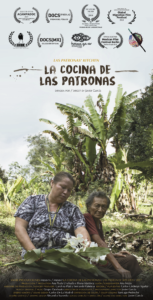Share
THE AUTHOR
In 2020, the award-winning journalist and activistic Kübra Gümüşay published her book Speaking and Being – How Language Binds and Frees Us first in German, followed by an English version in 2022. Kübra Gümüşay is the daughter of Turkish migrants, who was born in Hamburg (Germany), where she later studied Political Science. She then moved to UK and continued her academic career in London and Oxford. Nowadays, the German-Turkish author is well known for her publications concerning public discourse, politics, feminism, islamophobia, and her engagement as an activist for social justice.
Kübra Gümüşay grew up bilingual and acquired fluency in a third language during her studies. While switching between languages, she experienced how words that describe the same processes, objects or phenomena carry different connotations in different languages. Moreover, she sensed that values as well as ideologies are reflected in linguistics. Therefore, the idea for her book originates her personal background and development.
THE BOOK
In Speaking and Being the author faces essential questions about how language shapes thinking, public discourse, and power dynamics. Her ideas and suggestions are based on the post-structuralist assumption, that language is not only a description of reality, but also shapes reality.
In the beginning of her book, the author explains how certain realities are created through the naming of phenomena. Gümüşay argues, that if there is a word for a process, state, or phenomenon, the naming of it makes it real. However, the non-naming of certain processes, states or phenomena makes them invisible. Moreover, language shapes our perception: Seemingly objective categories such as numbers differ across cultures, and the understanding and perception of numbers are shaped by the categories provided by language. Since the systems of expression differ between cultures, so does the perceived reality.
The author moreover shares the difficulties of growing up bilingual in a context where one language is seen as desirable, while the other one is not. Gümüşay analyses, that Turkish people and culture were seen as rather undesirable in Germany, which resulted in the problematization of the Turkish language.
Next, she points out the categorization of non-native speakers, migrants and racialized or religious minorities in the dominant language of the majority society. Whereas members of the majority society are involved in actively shaping language, others are objects of language rather than subjects that contribute to its creation. According to Gümüşay, this lack of active participation in the creation of language and discourse exemplifies a gap in power. The power to name things, and expressing one’s perspective, is a privilege of the majority society. This results in a social distinction: On the one hand, there are the Unnamed, namely those who label others and whose existence is seen as the norm. On the other hand, there are the Named, who are analyzed and categorized by the former group – such as “the foreigners” or “the Muslims”. According to the author, these labels lead to a public perception of a collective with certain attributes and characteristics. She thereby sees language as a mechanism of de-individualization, that transforms named people into representatives of their category, who are robbed of their individuality.
In conclusion, she advocates for an inclusive language, which treats people equally and deconstructs hierarchies. For Gümüşay, changing language and discourse are important steps towards anti-discrimination, because language reflects and drives injustice and discrimination within societies.
MY CONCLUSION & EVALUATION
From my point of view, Speaking and Being is a well written book that exemplifies theoretical concepts and ideas with everyday situations. It points out how language reflects and constructs power dynamics and results in discrimination. The book furthermore provides insights into the linguistic experiences of marginalized groups and strives for more inclusion. The role of labels is particularly clear, and the concept of unnamed and named groups within society helps to understand the power of defining and othering. Thus, Gümüşay’s book offers food for thought and highlights the importance of communication in multicultural societies.
However, besides all the positive aspects, the author does not specifically suggest how to proceed towards a more progressive language. The demand for change seems reasonable, however, the book lacks concrete conclusions on how this change might happen. In theoretical terms, the book builds on post-structuralist ideas that have existed since a long time does not necessary give new impulses. Moreover, most parts of the book focus on narratives rather than language per se.
Nevertheless, looking at the theories as applied to examples is interesting, and the reader benefits from the author’s wealth of experience. All in all, the book is a good introduction to language in interaction with societal power dynamics. Additionally, the many anecdotes and examples make it very accessible to a broad range of readers. However, for people with more knowledge on the topic, it lacks in depth and substance.


